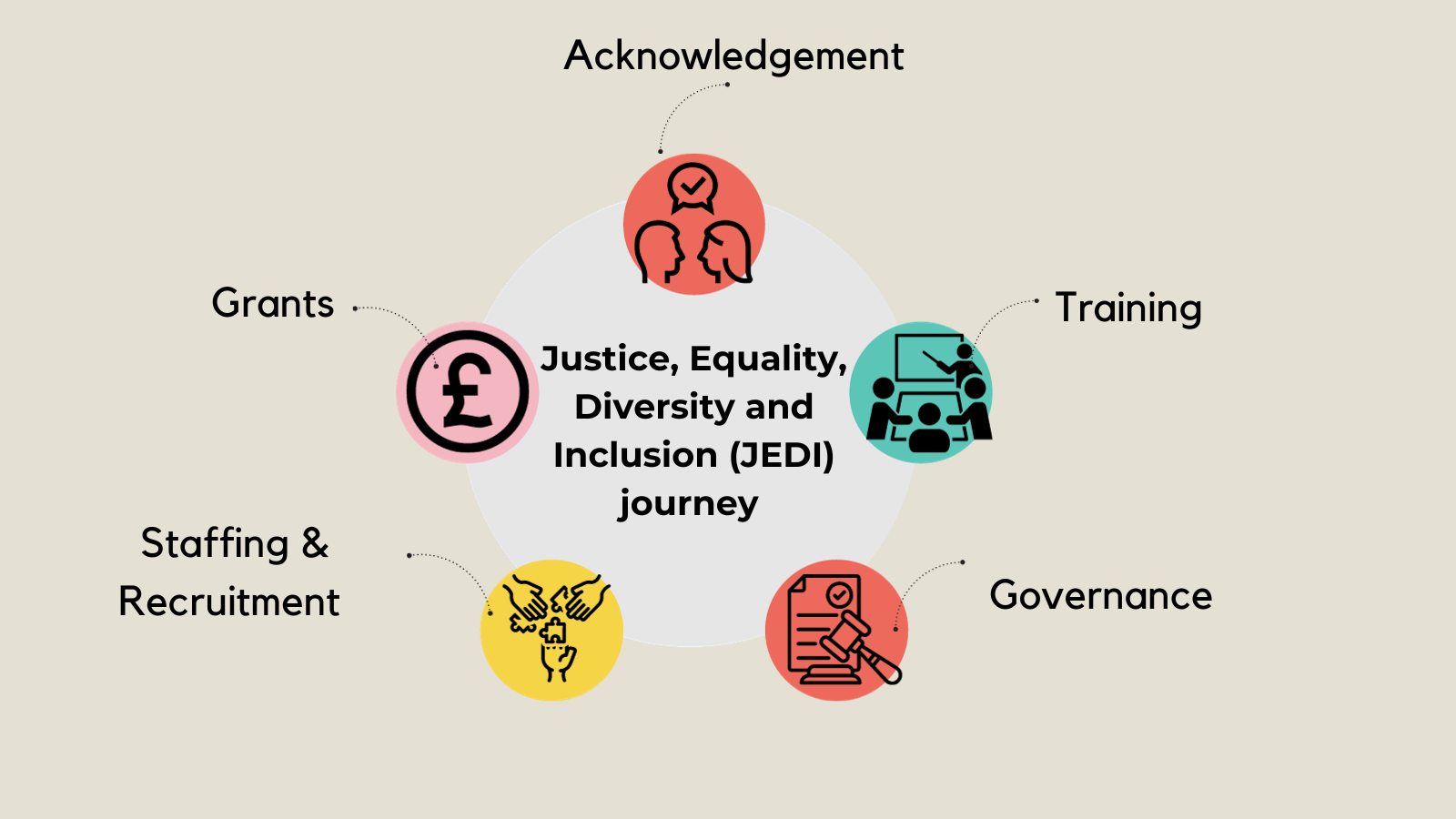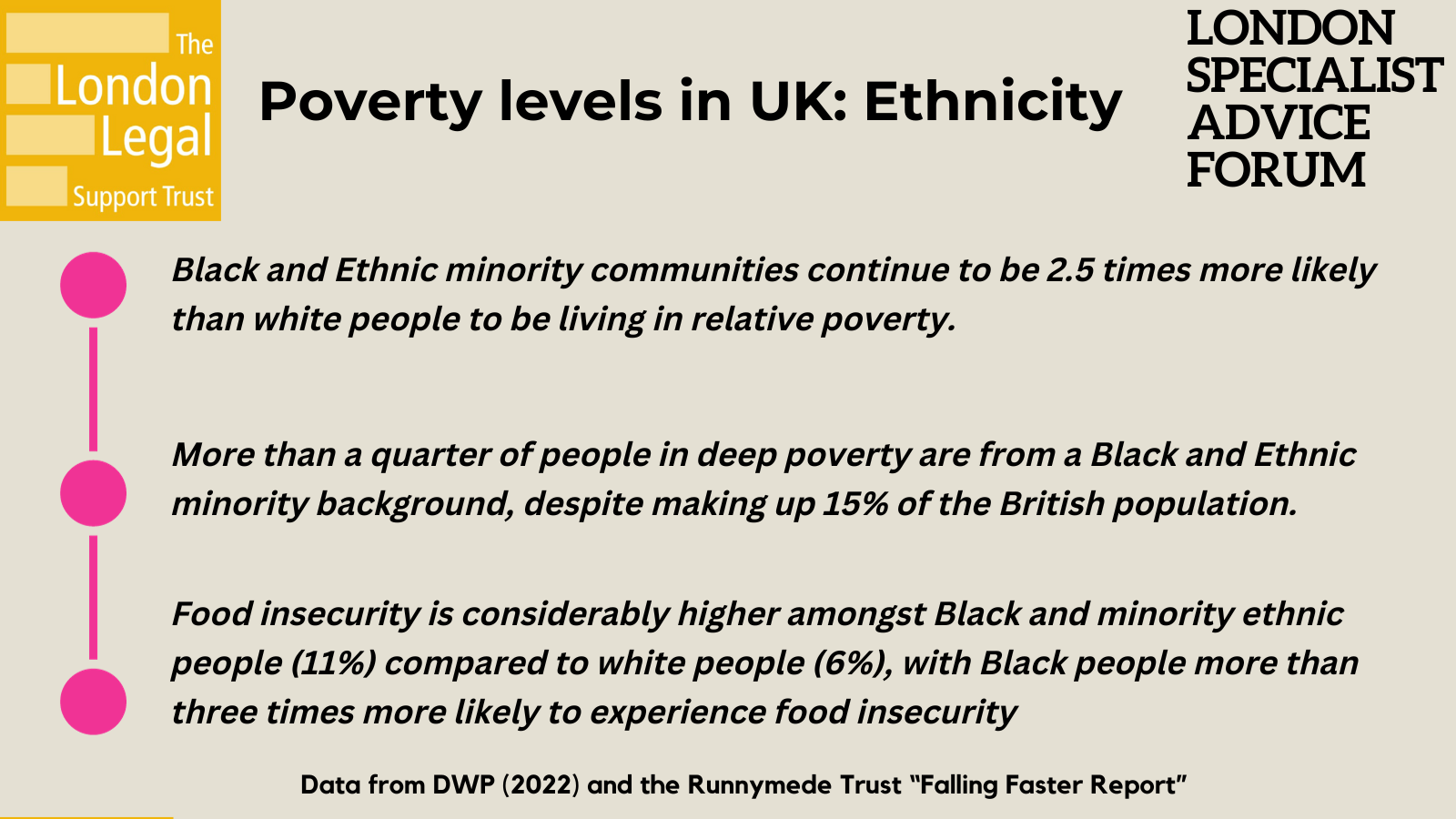Last month, we ran our 3rd London Specialist Advice Forum of the year focusing on the themes of equity and racial justice in the advice sector. Speakers from The Runnymede Trust, The Legal Education Foundation, and North Kensington Law Centre joined us. This forum served as a valuable platform for members to engage in discussions about how the advice sector can progress towards greater equity.
Racial justice and equity have long been central to the goals of numerous Law Centres, advice agencies, and community-based organisations dedicated to serving and assisting their communities. However, since the Black Lives Matter movement in 2020, there has been an increase in conversations about ways to make the advice sector more accessible and inclusive. This includes focusing on issues such as staffing and recruitment, training and governance, delivery of services amidst a cost-of-living crisis, and making the access to justice space more inclusive and equitable.
- The journey to racial equity in the sector
During our forum, Sheena Khanna from the Legal Education Foundation shared insights into their organisation’s journey towards becoming a more equitable and inclusive entity. She highlighted their organisational action plans and goals for incorporating anti-racist practices into their grant-making processes under the framework of “Power, Culture, and Inclusion.”

Following Sheena’s presentation, forum members acknowledged the intricate and multifaceted nature of the journey. They recognized that it involves an ongoing process of self-reflection, dialogue, and comprehension. Some participants in the forum also shared their experiences regarding how they are implementing anti-racist practices in their own organisations within data collection, recruitment practices, and governance policies.
- Racial Equity and the cost-of-living crisis
The ongoing cost of living crisis has enhanced the need for specialist advice agencies to be more equitable in their approach to serving their communities. During the forum, Alba Kapoor from the Runnymede Trust drew attention to how this crisis has exacerbated racial inequalities, particularly among those living below the poverty line. The “Falling Faster amidst a cost of living crisis: Poverty, Inequality, and Ethnicity in the UK (2022)” report presented data showing that over a quarter of people in ‘deep poverty’ come from Black and Ethnic minority backgrounds, despite comprising just 15% of the British population. The report also examined the adverse effects of social security measures, particularly austerity policies, on these communities, with punitive sanctions disproportionately affecting them.

During the forum, members highlighted that legal aid cuts had also had a detrimental impact on minority communities. This is also indicated in a 2020 report by the Advice Services Alliance, Advising Londoners. This identified significant gaps in advice services available to Black and minority ethnic communities, revealing that they are disproportionately affected by the reduction in legal aid resources, further highlighting the role of the whole free legal advice sector in alleviating inequalities.
- What the advice sector could do better
The advice sector has an important role to play in making society more racially just. To do this, there is a need for greater diversity and inclusion in the sector to gain the trust of communities and improve advice se Franck Kiangala, our final forum speaker, pointed out that the sector still has a long way to go in being fair, in everything from who is recruited, to how services are delivered, and who is involved in decision making. This is also reflected in Lindsey Poole’s article about race, exclusion, and the advice sector.
In summary, our recent London Specialist Advice Forum emphasized the crucial need for a more equitable, inclusive, and racially just advice sector, especially in light of the ongoing cost of living crisis and the negative impact of some social and legal policies. The forum provided a space for valuable discussions, paving the way for collective efforts to make meaningful changes within the sector.
You can read the full meeting notes from the forum here, or watch a recording of the session here
If you would like to know more about you can get involved with forum, please get in touch with [email protected]

